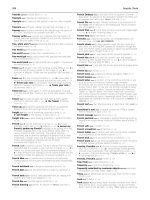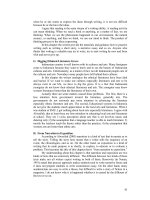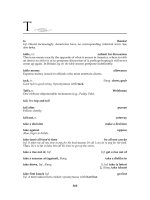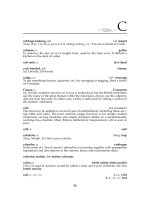American and british english differences
Bạn đang xem bản rút gọn của tài liệu. Xem và tải ngay bản đầy đủ của tài liệu tại đây (9.69 KB, 1 trang )
American and British English differences
Although British English and American English are very similar, there are a few differences of grammar and
spelling. Here are some examples of the most important differences.
Use of the simple past and present perfect tenses
In British English, only the present perfect can be used to talk about past actions which have an effect on the
present moment. In American English, both simple past and present perfect tenses are possible with similar
meanings.
Compare:
He has just gone out. OR He just went out. (US)
He has just gone out. (GB)
Do you have a question? OR Have you got a question? (US)
Have you got a question? (GB)
The past participle form of get
In American English, the past participle form of get is gotten. In British English, it is got.
I haven’t gotten an answer. (US)
I haven’t got an answer. (GB)
Collective nouns
In American English, collective nouns (e.g. committee, team, army, family, jury etc) are always followed by
singular verbs. In British English, both singular and plural verbs are possible.
Singular verbs are used when we are talking of the group as a whole. Plural verbs are used when we are talking
about individuals within the group.
The committee meets next week. (US)
The committee meet next week. OR The committee meets next week. (GB)
The indefinite pronoun one
In American English, the pronouns he, him and his can be used to refer back to one. In British English, this is not
possible.
One should know his neighbors. (US)
One should know one’s neighbours. (GB)
Be first to know when grammar rules change! Sign up to our newsletter here: englishgrammar.org (It's free)
Powered by TCPDF (www.tcpdf.org)









